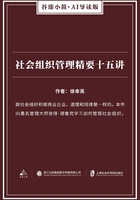War began a new epoch in the history of territorial taxation, upon which we need not here enter. In Brandenburg and some other states, it is marked by a complete cessation of attempts to increase the beer tax, and by a sustained effort for some fifty or sixty years to develop the direct taxes, the subsidies, and the assessment on which they rested. During the period 1670 to 1700, however, as prosperity once more began to return, the tendency to develop the indirect taxes, especially the excise, again became predominant.
Here let us pause. Our purpose was to shew by a particular example, that of Brandenburg, that, during the course of the period from the fifteenth to the seventeenth century, the creation of the German territorial state was not merely a political but also an economic necessity. But the same results were brought about elsewhere. The several states of Holland, the French provinces, the Italian city-states, are all analogous phenomena. We have to do with a great historical process, by which local sentiment and tradition were strengthened, the social and economic forces of the whole territory consolidated, important legal and economic institutions created; by which, further, the forces and institutions thus united were led to a battle of competition with other territories, involving numerous shiftings of toll, confiscations of goods and ships, embargoes and staple-fights, prohibitions of importation and exportation and the like; while, within the country itself, old antagonisms softened and trade became more free.
To so powerful and self-contained a structure and so independent and individual a policy as the town had reached in an earlier age, and the modern state has reached since, the German territory scarcely anywhere attained. Naturally, territorial patriotism was by no means so strong as municipal before or national since; economic conditions, the methods of production and of transport and the division of labour in the fifteenth and sixteenth centuries did not necessitate so high a degree of unity in economic organisation as before in the town and afterwards in the national state. The imperial constitution of Germany, imperfect as it was, was still strong enough to hold the territories back in many ways from an independent economic policy. We have already remarked how greatly, in the case of most territories, their geographical position and boundaries hampered them in their advance towards a position like that reached by some Italian and Dutch districts. Everywhere in southwestern Germany, and to a great extent also in central Germany, the territories of the several Estates, the dominions of the counts, of the imperial cities, of the abbots, of the bishops, and of the knights were so small, that, if for no other cause, they were bound to remain in the stage of a natural economy, and a merely local policy. In the northeast of Germany there were, indeed, larger united areas; but in density of population, supply of capital, state of trade and transportation, mechanism of administration and general cultivation, they were, even in 1600, inferior to western and central Germany; so that in their economic institutions they remained far behind the greater states of the southwest; partly also, of course, in consequence of want of skill on the part of their rulers and other fortuitous circumstances. Not without reason did the Brandenburg ordinance concerning the privy council complain, in 1604, that, in spite of all its favourable conditions and all its navigable streams, the country was coming to be less frequented by foreign merchants, nay, even abandoned by them; not without reason did it attribute this state of things to the want of good "Polizei"; i.e. to an executive that was too weak, and that had too little internal and external unity. And things became even worse in the course of the great war, which not only annihilated population and capital, but, what was harder still, - buried in ruin the beginnings of a rational economic policy for the territory, both in Brandenburg and elsewhere; weakened for many long years the sense of the necessity of such a policy; and everywhere strengthened local privilege and individual self-will.
Yet this very time, - the second half of the sixteenth century and the seventeenth century, - was an epoch which gave every inducement for an economic transformation. The way was already clear, out of the narrow circle of the small territory into the larger union of forces possible only in the great state.
An immeasurable horizon had been opened to the world's trade in India and America; the possession of spice colonies, and of the new gold and silver countries, promised measureless riches to those states that understood how to seize their share of the booty. But it was clear that for such purposes it was necessary to have powerful fleets, and either great trading companies or equivalent state organisations. At home, also, economic changes, of no less importance, took place. The new postal services created an altogether new system of communication. Bills of exchange, and the large exchange operations at certain fairs, together with the banks which were now making their appearance, produced an enormous and far-reaching machinery of credit. The rise of the press gave birth to a new kind of public opinion, and to a crowd of newspapers which cooperated with the postal service in transforming the means of communication. Moreover, there now took place in the several countries a geographical division of labour, which broke up the old many-sidedness of town industry;here the woollen manufacture was grouping itself in certain neighbourhoods and around certain towns, there the linen manufacture; here the tanning trade, there the hardware trade.














